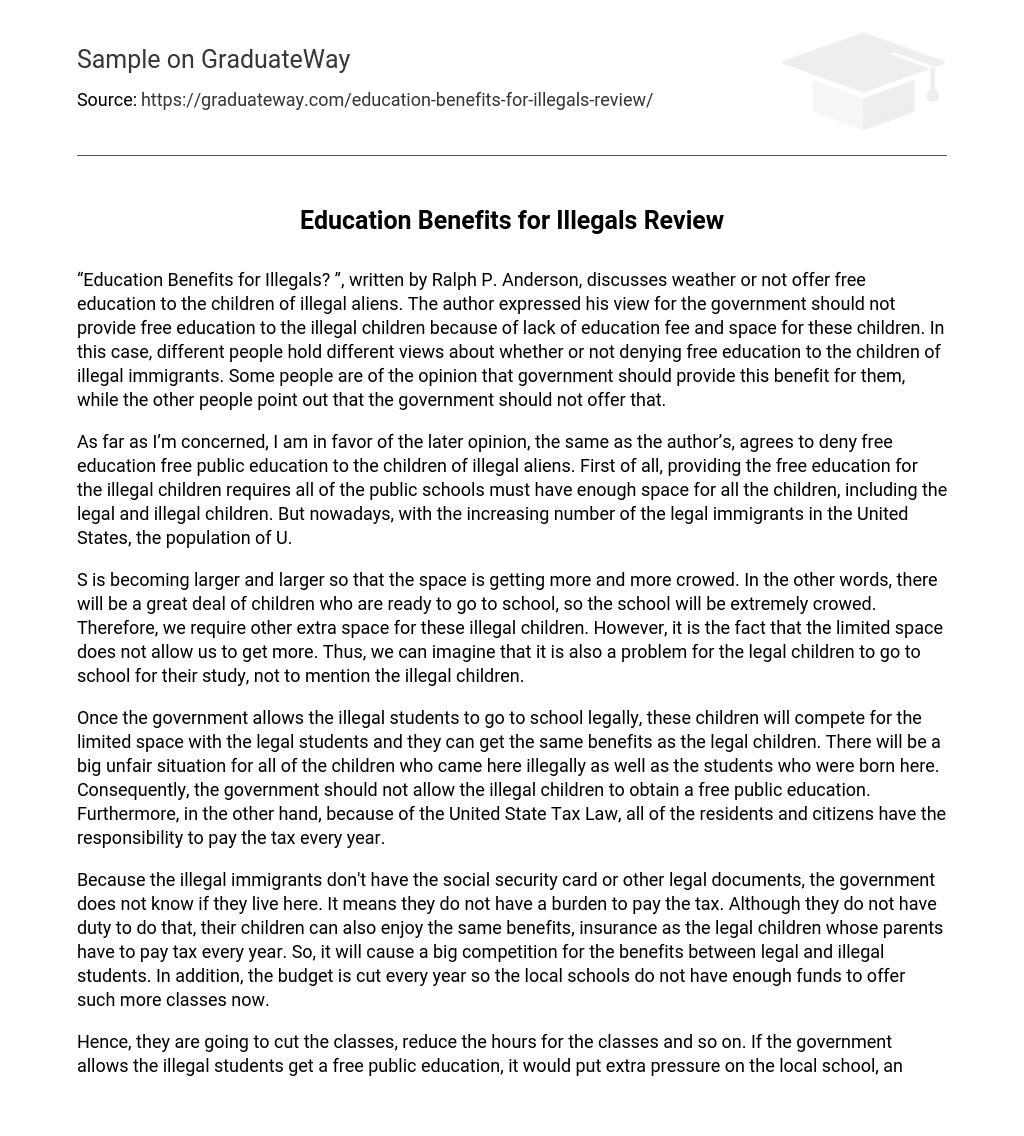The article “Education Benefits for Illegals?” written by Ralph P. Anderson discusses the controversy surrounding whether or not children of undocumented immigrants should be entitled to free education. Anderson opposes the government’s provision of free education to these children due to concerns about inadequate resources and funding. The issue has sparked contrasting viewpoints, as some individuals support extending this benefit to them while others argue against it.
The author’s position on denying free public education to children of illegal immigrants is supported. The main reason is that it would require enough space in all public schools to accommodate both legal and illegal children. However, the population of the US is growing quickly because there are more legal immigrants.
The issue of overcrowding in schools, caused by the increasing population, poses a significant problem as a large number of children require education. More space is needed to address this issue and accommodate undocumented children. However, the limited availability prevents us from obtaining additional space. As a result, both legal and undocumented children face obstacles when it comes to accessing educational opportunities.
Granting legal status to undocumented students allows them to access the same educational opportunities as lawful students and enjoy equal benefits. However, this policy can lead to inequity for both illegal and native-born individuals. Hence, it is crucial for the government to prohibit undocumented children from receiving free public education. Moreover, all residents and citizens must comply with the United States Tax Law by paying taxes annually.
Because illegal immigrants do not possess social security cards or legal documentation, the government remains uninformed about their presence in the country. As a result, these individuals are exempt from paying taxes. Nonetheless, their children still receive benefits and insurance comparable to those granted to legal families who meet their yearly tax obligations. Consequently, there is significant competition for benefits among both legal and illegal students. Moreover, current budget cuts have led to insufficient funds preventing local schools from providing extra classes.
Hence, there are plans to reduce class sizes and hours for classes. If the government grants illegal students free public education, it will increase the burden on local schools and intensify the need for further class reductions. This is unfair to our legal students. Therefore, we must maintain our stance against providing illegal children with the same free public education as legal children. This position is supported by various pieces of evidence.





